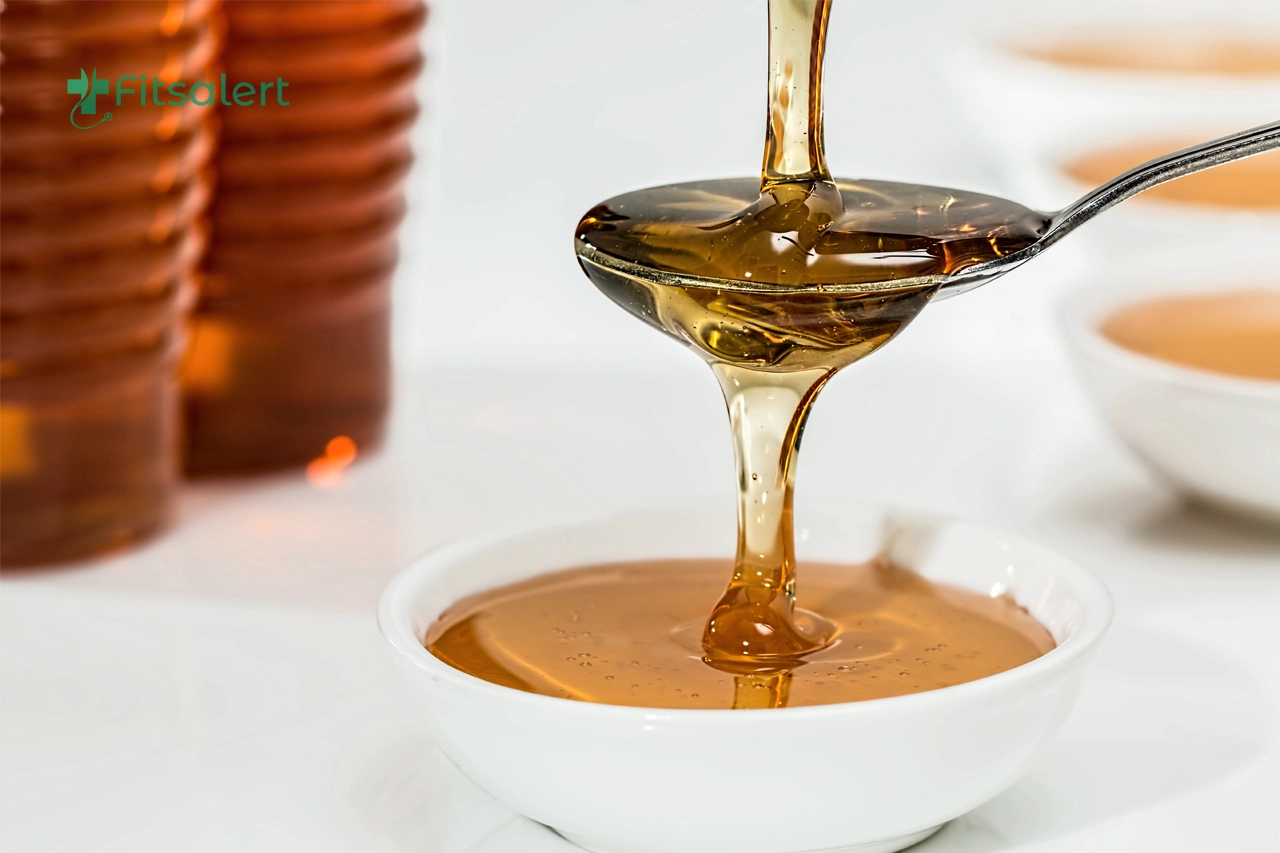While there’s no cure for the common cold and flu, simple remedies like chicken soup or hot ginger tea with honey can help alleviate symptoms. Some home treatments, like vitamin C, may shorten the duration of illness slightly. However, if symptoms persist or worsen, such as difficulty breathing or severe symptoms, it’s crucial to seek medical assistance promptly. Below, discover effective home remedies for combating cold and flu symptoms.
Honey
When dealing with a bothersome sore throat or persistent cough, turning to honey can offer some relief. A thorough review conducted in 2020 discovered that honey was more effective at easing symptoms of upper respiratory tract infections.
Particularly in reducing the severity and frequency of coughing, compared to traditional remedies like over-the-counter cough medicines. Moreover, a study involving children aged 1 to 5 found that honey performed just as well as the common cough supplement dextromethorphan. In addition to its soothing properties, honey also has anti-inflammatory benefits.
Whether taken on its own or mixed with water, it can create a protective coating in the throat, helping to ease irritation. However, it’s important to remember that honey should not be given to children under 12 months old.

Natural Home Remedies For Cold And Flu
Salt Water Gargle
Don’t underestimate the benefits of gargling salt water! Gargling with a mix of warm water and salt can bring you some comfort during the cold and flu. If you’re dealing with a sore throat, the saline solution can work wonders by loosening up mucus and reducing inflammation.
Gargling with salt water also helps get rid of viruses and harmful bacteria in your mouth and throat. This traditional approach might even act as a preventive measure against common upper respiratory infections like the cold or flu.
Nasal Irrigation
Using a saline solution doesn’t stop at gargling—during this cold and flu consider nasal irrigation to ease congestion and stuffiness. Techniques like using a neti pot or saline spray involve flushing salt water through your nasal passages to clear out mucus, debris, and allergens from your sinuses.
This method helps thin mucus, decrease swelling, and hydrate the nasal passages, providing relief from dryness and itching. It’s essential to follow instructions and maintain good hygiene when using these remedies, as recommended by the FDA.
Zinc
Sensing the onset of a cold? Zinc might come to your rescue. Several studies indicate that zinc lozenges could potentially shorten the duration of a cold, especially when taken within 24 hours of noticing symptoms. A meta-analysis of 13 clinical trials revealed that zinc acetate lozenges containing 75 mg or more of zinc acetate daily reduced the average length of a cold by 42%.
However, the exact recommended dose is yet to be determined, and further research is required to understand this remedy.
Vitamin C
Vitamin C might offer relief during the common cold because it supports the immune system, bone health, and muscle strength. A meta-analysis of clinical trials revealed that regular Vitamin C supplementation had a “modest but consistent” impact on reducing the duration of cold symptoms.
The analysis indicated that Vitamin C supplements could shorten a cold’s duration by about 8% for adults and 14% for children. However, it doesn’t necessarily prevent catching a cold. Despite some claims, research shows that Vitamin C supplements don’t reduce the likelihood of catching a cold.
Also, starting Vitamin C supplementation after symptoms begin doesn’t lessen the duration or severity of symptoms. Benefits are observed when taken regularly.
Steam Inhalation
Another potentially effective treatment is steam inhalation. Breathing moist, warm air from a water vaporizer or a bowl of hot water during a cold or sinus infection might bring relief. Inhaling steam could ease inflammation in the blood vessels of nasal passages and thin mucus, reducing congestion.
Although research on the benefits of steam inhalation is mixed, it’s generally considered safe, and there’s little to no risk in trying it for relief. Keep in mind that what works for one person may not work the same way for another.
While these treatments won’t completely cure a common or upper respiratory infection, research findings can vary. Although, they are safe options worth trying for comfort during the cold and flu.










